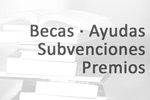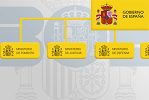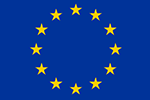Product standards and requirements
Content
Product requirements
Products on the market of the European Union (EU) may be subject:
- To harmonised legislation, applicable equally to all Member States (decisions, directives, regulations, etc.); or
- To non-harmonised legislation: in which case they are regulated by national provisions.
In any event, the general product safety framework set out in Regulation (EU) 2023/988 on general product safety and the principle of mutual recognition enshrined in EU law to prevent obstacles and promote the free movement of goods laid down in Regulation (EU) 2019/515 of the European Parliament and of the Council of 19 March 2019 on the mutual recognition of goods lawfully marketed in another Member State
will always apply.
Products subject to harmonised legislation
For the purposes of this information, products means all products other than food, feed, medicinal products for human and veterinary use, live plants and animals, products of human origin and products derived from plants and animals directly related to their future reproduction.
As laid down in Decision (EC) 768/2008![]() on a common framework for the marketing of products, the specific harmonised legislation on the products within that framework avoids as far as possible going into technical detail on products and merely lays down the essential health and safety requirements. These essential requirements are drafted with sufficient precision as to establish legally binding obligations and their wording facilitates assessment of conformity with them.
on a common framework for the marketing of products, the specific harmonised legislation on the products within that framework avoids as far as possible going into technical detail on products and merely lays down the essential health and safety requirements. These essential requirements are drafted with sufficient precision as to establish legally binding obligations and their wording facilitates assessment of conformity with them.
Where can I see the essential requirements?
For the essential requirements, refer to each set of legislation applicable to each product.
For information on the legislation applicable to each product, see the page: Identifying product requirements – Your Europe ![]() (europa.eu) or the Product Contact Point for Spain in accordance with Regulation (EU) No 2019/515: Product Contact Points | Internal Market, Industry and SMEs (europa.eu).
(europa.eu) or the Product Contact Point for Spain in accordance with Regulation (EU) No 2019/515: Product Contact Points | Internal Market, Industry and SMEs (europa.eu).![]()
If you want to release a product from a third country into EU territory, it is advisable to look at the European Commission’s EU Trade Helpdesk![]() website for guidance on the Customs Code applicable to imports.
website for guidance on the Customs Code applicable to imports.
Economic operators
Businesses marketing or releasing products on the EU market must comply with the relevant EU law.
In accordance with their respective roles in the supply chain, these economic operators are responsible for product conformity. They must be able to ensure that they are safeguarding public interests to a high level in terms of health and safety, consumer and environmental protection, and fair competition within the EU market.
All businesses involved in the supply chain must adopt appropriate measures to ensure that they are marketing only products which conform to the applicable legislation.
Usually there are tasks and responsibilities which belong to the manufacturer alone. With detailed knowledge of the design and production process, the manufacturer is best placed to complete the conformity assessment procedure.
On the other hand, businesses in the supply chain which play a role in releasing the products on to the market, such as importers and distributors, must also ensure:
- That the products they are selling comply with the legislation in force;
- That the products have the necessary marking and documentation;
- That the products are traceable and that their business actively cooperates with the market surveillance authorities.
For the obligations specific to each of these businesses, see the specific legislation applicable to the product in question.
Finally, the entry into force of Regulation (EU) 2019/1020 (opens in a new window) assigns responsibilities to economic operators and introduces an obligation that there should always be an operator established in the Union for products subject to Regulations (EU) 305/2011 (34), (EU) 2016/425 (35) and (EU) 2016/426 (36) of the European Parliament and of the Council, and Directives 2000/14/EC (37), 2006/42/EC (38), 2009/48/EC (39), 2009/125/EC (40), 2011/65/EU (41), 2013/29/EU (42), 2013/53/EU (43), 2014/29/EU (44), 2014/30/EU (45), 2014/31/EU (46), 2014/32/EU (47), 2014/34/EU (48), 2014/35/EU (49), 2014/53/EU (50) and 2014/68/EU (51) of the European Parliament and of the Council.
Such operators include:
- A manufacturer established in the Union;
- An importer, where the manufacturer is not established in the Union;
- an authorised representative;
- A fulfilment service provider established in the Union with respect to the products it handles, where no other economic operator as mentioned in points (a), (b) and (c) is established in the Union.
Standards and accreditation
A manufacturer may use standards to demonstrate a product’s compliance with the essential legal requirements. It is common for the harmonised legislation to have harmonised standards which serve the particular purpose of conferring a presumption of conformity with essential requirements of the relevant Regulations or Directives. See further information on page: Product standards, technical specifications and certification.![]()
Sometimes the applicable legislation requires a conformity assessment by an independent body, to demonstrate that certain products comply with such standards or technical specifications, depending on their properties, features or health and/or safety risks.
In some cases and circumstances, the applicable legislation requires Member States to notify conformity assessment bodies to the Commission. These are known as ‘notified bodies’. Check the relevant legislation in each case.
Notified bodies may offer their services EU-wide and are listed on the European Commission's NANDO Information System page![]() (New Approach Notified and Designated Organisations). Their role includes compulsory participation in the coordination and cooperation bodies at European level, and compliance with certain minimum requirements. These include accreditation, for which more information appears below.
(New Approach Notified and Designated Organisations). Their role includes compulsory participation in the coordination and cooperation bodies at European level, and compliance with certain minimum requirements. These include accreditation, for which more information appears below.
Accreditation and market surveillance requirements: principle of mutual recognition
Regulation (EC) No 765/2008![]() setting out the requirements for accreditation and market surveillance relating to the marketing of products creates a general framework of principles and standards relating to accreditation. This strengthens trust between Member States as regards the competence of the conformity assessment bodies and, consequently, the certificates and test reports they issue. Thus it puts the mutual recognition principle into practice.
setting out the requirements for accreditation and market surveillance relating to the marketing of products creates a general framework of principles and standards relating to accreditation. This strengthens trust between Member States as regards the competence of the conformity assessment bodies and, consequently, the certificates and test reports they issue. Thus it puts the mutual recognition principle into practice.
National accreditation bodies
National accreditation bodies are an established requirement. The Spanish body is Entidad Nacional de Acreditación – ENAC.
Accreditation is an official endorsement of the technical competence of the bodies responsible for assuring compliance with the applicable requirements.
A national accreditation body issues a declaration of accreditation referring to a conformity assessment body. The accreditation declaration states that the conformity assessment body meets the requirements under the standards, and any additional requirements of the relevant laws, and can therefore carry out specific conformity assessment activities.
Further information
Further information on laws and regulations for products under the harmonised legislation are in the European Commission's Blue Guide ![]() on the implementation of EU product rules.
on the implementation of EU product rules.
Products not subject to harmonised legislation
When a product is not subject to specific harmonised legislation, it will be subject to the national legislation in force in each Member State.
The following have been established to guarantee the free movement of goods in non-harmonised sectors:
- The principle of mutual recognition in accordance with Regulation (EU) 2019/515
 on the mutual recognition of goods lawfully marketed in another Member State; and
on the mutual recognition of goods lawfully marketed in another Member State; and - The notification procedure in accordance with Directive (EU) 2015/1535
 laying down a procedure for the provision of information in the field of technical regulations and of rules on Information Society services.
laying down a procedure for the provision of information in the field of technical regulations and of rules on Information Society services.
Information for each Autonomous Community





Andalucía Aragón Asturias, Principado de Balears, Illes Canarias Cantabria Castilla y León Castilla-La Mancha Cataluña Ciudad de Ceuta Ciudad de Melilla Comunitat Valenciana Extremadura Galicia Madrid, Comunidad de Murcia, Región de Navarra, Comunidad Foral de País Vasco Rioja, La
Legal and/or technical references
-
DG GROW European Commission by sector

-
Blue Guide

-
Harmonised standards

-
Regulation (EC) No 765/2008 of the European Parliament and of the Council of 9 July 2008 setting out the requirements for accreditation and market surveillance relating to the marketing of products and repealing Regulation (EEC) No 339/93

-
Regulation (EU) 2019/1020 of the European Parliament and of the Council of 20 June 2019 on market surveillance and compliance of products and amending Directive 2004/42/EC and Regulations (EC) No 765/2008 and (EU) No 305/2011

-
Decision No 768/2008/EC of the European Parliament and of the Council of 9 July 2008 on a common framework for the marketing of products, and repealing Council Decision 93/465/EEC

-
Regulation (EU) 2023/988 of the European Parliament and of the Council of 10 May 2023 on general product safety, amending Regulation (EU) No 1025/2012 of the European Parliament and of the Council and Directive (EU) 2020/1828 of the European Parliament and the Council, and repealing Directive 2001/95/EC of the European Parliament and of the Council and Council Directive 87/357/EEC











